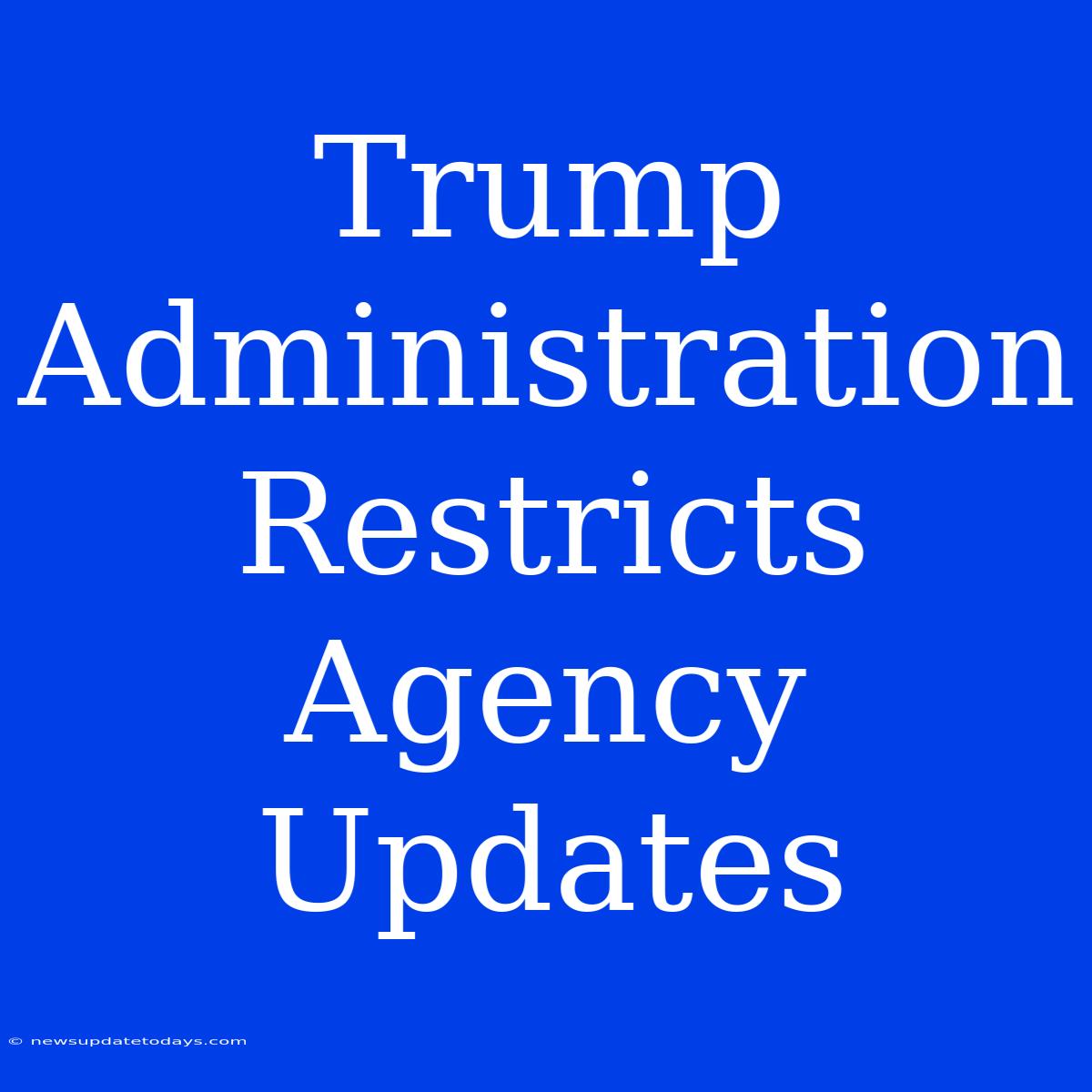Trump Administration's Restrictions on Federal Agency Website Updates: A Muzzling of Information?
The Trump administration implemented significant restrictions on federal agency website updates, sparking considerable debate regarding transparency and public access to government information. This move, characterized by some as a "muzzling" of information, significantly altered how the public interacted with government data and services. This article delves into the specifics of these restrictions, their impact, and the ongoing ramifications.
What Were the Restrictions?
The restrictions weren't a single, sweeping policy, but rather a series of actions and directives that effectively limited the ability of federal agencies to update their websites. These included:
-
Increased review processes: Agencies faced significantly stricter review processes before publishing any updates, leading to delays and often preventing the dissemination of timely information. This included reviews by political appointees, sometimes outside the agency's normal channels.
-
Restrictions on certain types of information: Some agencies were instructed to avoid publishing information deemed politically sensitive or potentially critical of the administration. This led to the removal or suppression of data related to climate change, healthcare statistics, and other topics.
-
Reduced staff and resources: Budget cuts and staff reductions in communications and web development teams hampered the ability of agencies to maintain and update their websites effectively.
-
Emphasis on messaging control: The administration prioritized a consistent, controlled message across all government communications, limiting the ability of agencies to present information independently or with nuanced perspectives.
The Impact of the Restrictions
The impact of these restrictions was far-reaching:
-
Decreased public access to information: The public's ability to access timely, accurate, and complete information from government agencies was significantly impaired. This hampered informed decision-making and citizen engagement.
-
Erosion of transparency: The restrictions undermined the principle of government transparency, a cornerstone of a democratic society. The reduced flow of information made it harder to hold the government accountable.
-
Damage to trust in government: The perceived suppression of information further eroded public trust in government institutions and their commitment to providing accurate and objective information.
-
Challenges for researchers and journalists: Researchers and journalists reliant on government data faced significant difficulties in accessing the information they needed for their work.
Long-Term Consequences and Ongoing Debates
The Trump administration's restrictions on federal agency website updates had lasting consequences. The debates surrounding government transparency and control over information continue. Discussions center on:
-
The balance between controlled messaging and accurate information dissemination: Finding the right balance between presenting a consistent government message and allowing agencies to provide accurate and objective information remains a challenge.
-
The role of technology in government communication: The increasing reliance on digital platforms necessitates the development of robust mechanisms for ensuring transparency and public access.
-
The need for independent oversight: Mechanisms are needed to ensure that agencies have the resources and autonomy to update their websites with accurate and timely information, free from undue political influence.
The Trump administration's approach serves as a cautionary tale regarding the importance of maintaining open and accessible government communication. The debate surrounding these restrictions underscores the ongoing need for robust mechanisms to guarantee transparency and public access to government information in the digital age.

